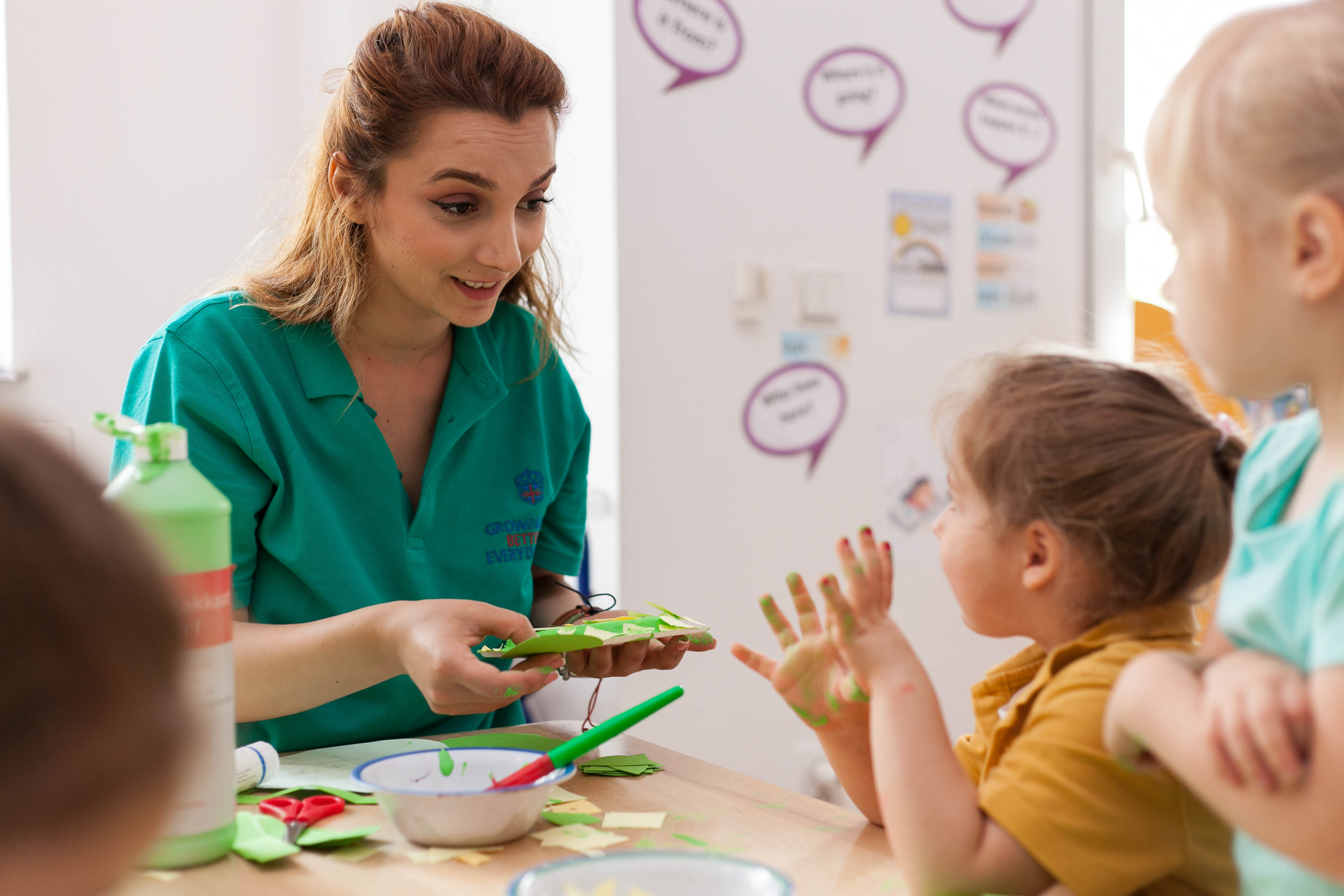Shiny Stars
Children between the ages of 3 and 4 are full of energy and enthusiasm and use every day to build, create or discover everything new around them.
During this stage children need the attentive involvement of adults in order to develop both socially and emotionally. Grownups can help them through praise and encouragement or they can remind them of the impact their behavior can have on both themselves and those around them.
Based on these principles, children from Shiny Stars benefit from:
- A half-day or full-day schedule that stimulates children’s activities, specially created in order to meet the needs specific to the ages of 3 and 4 years old.
- Shiny Stars educators are trained by our British headmistress according to the best strategies of relating to this age group.
- 1 educator for every 6 children guarantees a high level of involvement during the entire day.
- British curriculum, with a high degree of support in order to offer children the opportunity to express themselves fluently and naturally from a young age.
- Activities are divided and planned carefully in order to address the needs of the “whole child”: physically, intellectually, emotionally and socially.
- Children are encouraged to explore their surroundings, to find toys and games in order to make their own choices.
Rainbows
IIn England and Wales children start schooling at the age of 5. The first year is a combination of preschool and primary education. The Rainbows group was created in order to emulate this. Rainbows and Early Explorers (between the ages of 5 and 6) are part of our School Years department,
Children between the ages of 4 and 5 enjoy more independence and are more confident in their abilities: they can handle themselves with a minimum of help on a daily basis and are prouder of their accomplishments, looking forward to sharing their “EUREKA” moments with others.
Although the children are capable of focusing on their activities for longer, they need permanent stimulation in order to become capable of expressing themselves in a variety of ways.
Children in Rainbows benefit from:
- A day schedule from 8am to 4pm, structured in such a way as to include play, games and an introduction into formal learning.
- Rainbows educators are trained by our British Head Teacher according to best practice relating to the 4-5 years old age group.
- 1 educator for every 8 children supports a high level of involvement throughout the day.
- British curriculum, including an introduction to Literacy and Mathematics systems, using methods from schools in Great Britain.
- Activities that focus on social and emotional development, science and creativity take place during the week./li>
Technology is frequently used in order to improve the children’s educational process.
Children are encouraged to explore their environment, to work, to play in small groups and to exchange ideas.
Early Explorers
Early Explorers is the second year in our “School Years” department. Based on what they’ve learned in Rainbows, Early Explorers follow the first year of the National Curricula, keeping the individual needs of the child as the primary focus and making progress in the introduction of formal learning.
Children between the ages of 5 and 6 are independent in following a daily routine and are able to largely take care of their needs, with a minimum of help. They are capable of playing and working together, of obtaining a larger degree of understanding regarding others’ needs and can make some responsible decisions on their own.
They can focus on activities that interest them and are capable of expressing their ideas visually, verbally or through creativity such as painting or dancing.
Children in Early Explorers benefit from:
- A day schedule from 8am to 4pm, structured in such a way as to include games and formal learning activities.
- Early Explorers educators are trained by our British Head Teacher according to the best practice of relating to the 5-6 years old age group.
- 1 educator for every 9 children supports a high level of involvement during the entire day.
- English curricula, as well as an introduction into the literacy and Mathematics systems, using methods from schools in Great Britain.
- Activities that focus on social and emotional development, science and creativity take place during the week.
- Technology is frequently used in order to improve the children’s educational process. Children are encouraged to explore their environment, to work, to play in small groups and to exchange ideas..

